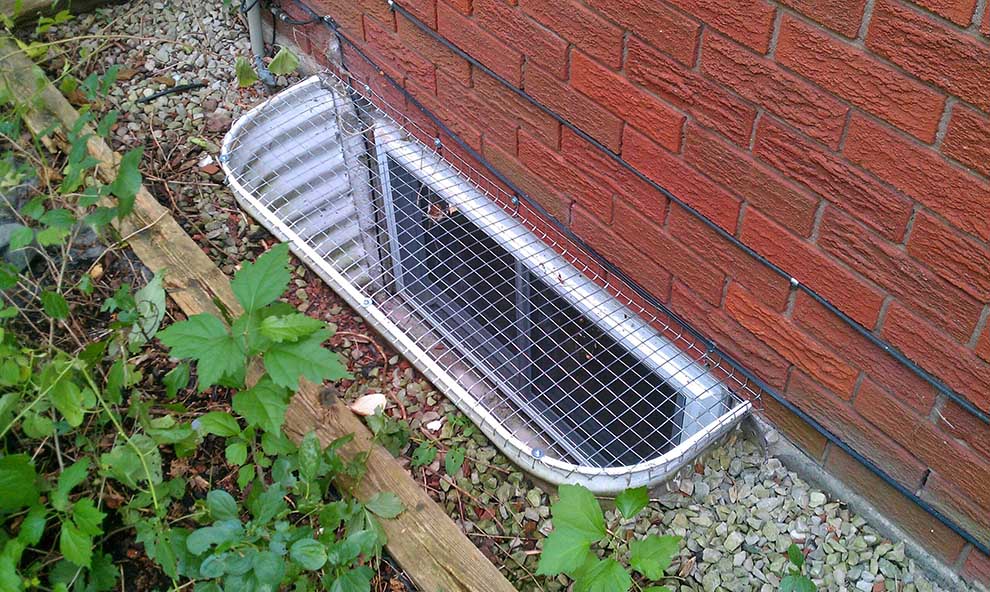SKUNK REMOVAL PROCESS
Assess and Remove
To solve a skunk problem, we start with a complete assessment of your property to determine where the skunks are living and how they’re gaining access. Since skunks do not climb our inspection will focus on the ground level den sites like porches, decks and sheds. We then perform a careful and humane removal, including any babies.
Clear and Clean
Once we humanely remove any skunks and their babies we will move on to clearing the den site of any damaged property, nesting material or debris that was gathered by the animals. We can then begin cleaning, disinfecting and deodorizing the area to eliminate any risk of illness, irritating odors and attractants for other wildlife.
Prevent and Protect
To prevent a future skunk problem, our technicians will get to work installing protective barriers designed to keep skunks out. This usually involves digging out around the perimeter of the deck, shed or porch and burying a heavy steel mesh deep into the ground. Our workmanship and materials are backed by a lifetime warranty.
There are two species of skunk in British Columbia, the striped skunk and the western spotted skunk. The striped skunk, the most common in North America, may make a den in a spot on your property that is quiet and out of the way, such as underneath a porch or a shed, in which to raise its babies. While skunks are not present on Vancouver Island, education surrounding common skunk behaviour can be useful for Victoria residents that commonly visit the mainland.
What We Do
Though skunks are gentle creatures, it is inadvisable to try to handle them. If threatened, they may use their odoriferous spray on a perceived attacker. Though rabies is rare in British Columbian skunks, they may carry other diseases. We provide humane skunk removal to keep both you and the animals safe.
The scent of a skunk can linger for up to three weeks. We not only remove the skunks, but we clean up and decontaminate where they have been. We also take specific measures to prevent skunks or other animals from making a den in the same place, securing any other potential openings.
What B.C. Homeowners Should Know About Skunks
Skunks have a hard time getting around in the snow, so as the weather starts to turn colder, they build up fat stores by eating as much as possible and then look for a den site in which to spend the winter. Skunks do not hibernate; instead, they enter a state called torpor. When the weather is cold, their metabolism decreases and they become inactive. However, they can be roused from this state of dormancy by an increase in temperature. Once awake, they take advantage of the warmer weather by going out and foraging for food.
Skunk mating season occurs during the late winter or early spring, as the ground is starting to thaw and the temperatures become consistently warmer. Skunks usually conserve their spray, using it only when they have no other alternatives, but they may spray each other when mating. The gestation period is about two months, so a litter of up to nine babies, but more often only four or six, may be born around May or June.
If you smell skunk, it does not necessarily mean that there is one on your property as the smell is detectable from at least a mile away. A stronger smell indicates closer proximity, but you should also look for other signs of a den on your property to confirm your suspicions. Striped skunks cannot climb, nor can they jump very high, but they are skilled diggers. Look for signs of freshly dug dirt near spaces under porches or decks. Skunks prefer to find an existing space for a den and do a little digging to make it larger and more comfortable. We do all the work of finding where exactly they are denning and removing them. Skunks typically have several den sites in a given area. Having been removed from one, the mother skunk can move her babies to another one.

Interesting Facts About Skunks
Skunks are not malicious animals. Given the choice, they prefer to run away rather than spray, and the spray usually doesn’t cause any long-term damage. Get to know more about these fascinating creatures:
FACT:
FACT:
FACT:
FACT:
Skunks have an important role to play in the ecosystem, but they don’t belong on your property. By learning more about common skunk behaviours, and how to handle interactions, homeowners in Victoria can feel prepared if they ever find themselves face to face with a skunk.





